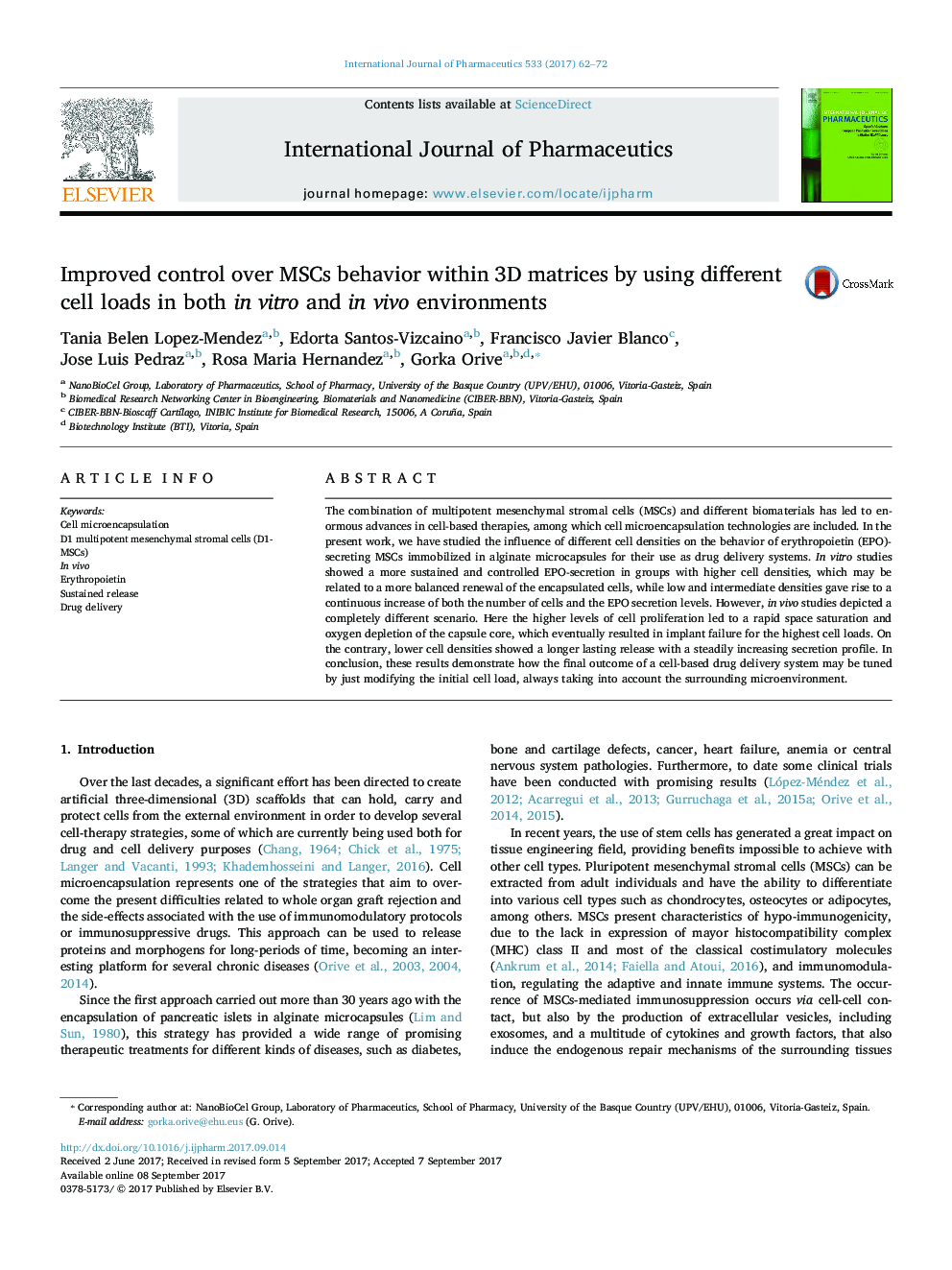| Article ID | Journal | Published Year | Pages | File Type |
|---|---|---|---|---|
| 5549929 | International Journal of Pharmaceutics | 2017 | 11 Pages |
The combination of multipotent mesenchymal stromal cells (MSCs) and different biomaterials has led to enormous advances in cell-based therapies, among which cell microencapsulation technologies are included. In the present work, we have studied the influence of different cell densities on the behavior of erythropoietin (EPO)-secreting MSCs immobilized in alginate microcapsules for their use as drug delivery systems. In vitro studies showed a more sustained and controlled EPO-secretion in groups with higher cell densities, which may be related to a more balanced renewal of the encapsulated cells, while low and intermediate densities gave rise to a continuous increase of both the number of cells and the EPO secretion levels. However, in vivo studies depicted a completely different scenario. Here the higher levels of cell proliferation led to a rapid space saturation and oxygen depletion of the capsule core, which eventually resulted in implant failure for the highest cell loads. On the contrary, lower cell densities showed a longer lasting release with a steadily increasing secretion profile. In conclusion, these results demonstrate how the final outcome of a cell-based drug delivery system may be tuned by just modifying the initial cell load, always taking into account the surrounding microenvironment.
Graphical abstractSchematic illustration of the main design of the study. For 45 days, 4 different groups of microcapsules (CL2, CL5, CL10 and CL20) were tested, both in vitro and in vivo, for cell viability, metabolism, proliferation, cell cycle and EPO secretion. Histological analyses were also performed in order to confirm the results obtained in other tests.Download high-res image (117KB)Download full-size image
